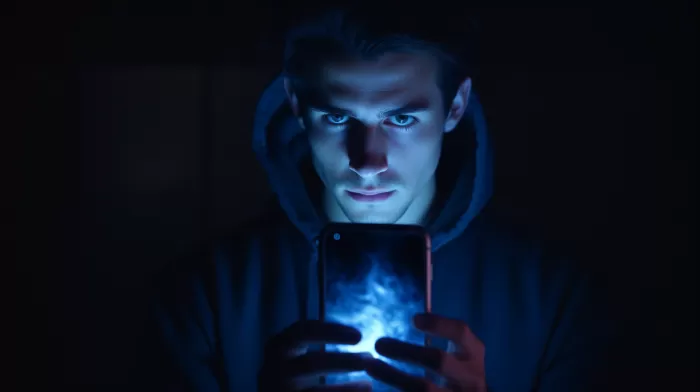A good night’s sleep is essential for maintaining overall health, but using electronic devices before bedtime can lead to sleep disturbances and a range of health issues. Smartphones, tablets, and e-readers emit blue light, which can disrupt the body’s natural sleep-wake cycle called circadian rhythm. Researchers have found that exposure to blue light before sleep can have long-term health consequences, including an increased risk of cancer, obesity, diabetes, and depression.
The Effects of Blue Light
Blue light from electronic devices, such as smartphones and e-readers, can interfere with the production of the hormone melatonin, which aids in sleep and helps protect the body against cancer. As blue light enters the eyes, melatonin production is suppressed, leading to a disruption in the body’s circadian rhythm.
Richard Stevens, a researcher who has been studying the effects of artificial lighting for 30 years, says, “We don’t know for certain, but there’s growing evidence that the long-term implications of this (type of light at night) have ties to breast cancer, obesity, diabetes, and depression, and possibly other cancers.”
Limiting Blue Light Exposure
One of the simplest ways to minimize the negative effects of blue light on sleep and overall health is to limit the use of electronic devices close to bedtime. This allows the body’s natural circadian rhythm to prepare for sleep.
However, it is nearly impossible to avoid blue light exposure completely, as it comes from various sources throughout the day, including office lights, car screens, and even the lighting in supermarkets.
Nutrients to Protect Against Blue Light
Two nutrients that can help defend against blue light exposure are lutein and zeaxanthin. These carotenoids, similar to beta-carotene, help the eyes filter out blue light and protect them from aging and oxidative damage. Foods rich in lutein and zeaxanthin include egg yolks, mangoes, corn, sweet potatoes, carrots, squash, tomatoes, and dark leafy greens, such as kale, spinach, collards, and bok choy.
Although conventional medicine has not specified “recommended daily intakes” for these nutrients, health experts, such as Dr. Cutler, recommend consuming at least 20-30 mg of lutein and 2-4 mg of zeaxanthin per day. This can help the eyes block excess blue light and defend against various health issues, including cancer.
Creating a Sleep-Friendly Environment and Routine
In addition to limiting exposure to blue light and consuming lutein and zeaxanthin, other steps can be taken to help ensure a restful night’s sleep. These include:
- Keeping the bedroom cool, dark, and quiet, as this aids in relaxation and helps signal to the body that it is time for sleep.
- Establishing a consistent sleep routine by going to bed and waking up at the same time every day, even on weekends.
- Developing a bedtime ritual, such as reading a book with dim, red light (which is less disruptive to circadian rhythm), or practicing relaxation techniques like deep breathing exercises, meditation, or gentle stretching.
- Eliminating caffeine and alcohol consumption several hours before bedtime, as these substances can interfere with sleep quality.
- Engaging in regular physical activity during the day, which can help improve sleep and overall health, but avoid intense exercise close to bedtime as it might have the opposite effect.
By taking these measures, you can support the body’s natural sleep-wake cycle, reduce the harmful effects of blue light exposure, and improve overall health and well-being.



